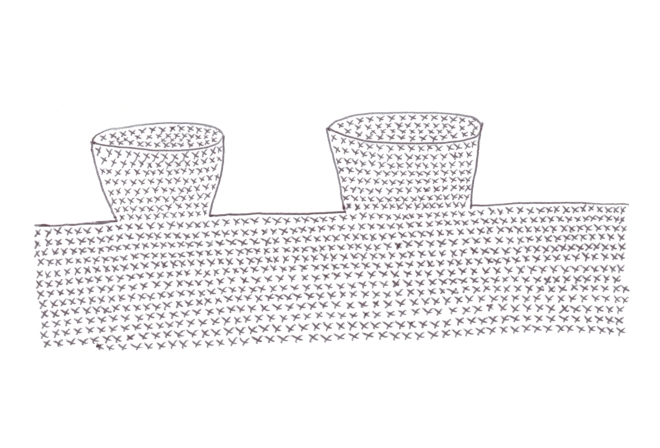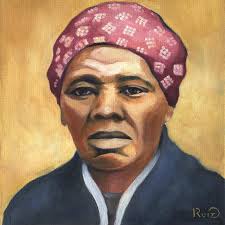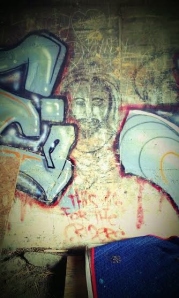It was close to midnight on December 4, 2011. I was engaging in a direct action with several other activists and organizers to publicly and prophetically reclaim an abandoned public works building. Why should buildings like this sit empty when there are over 6,000 people sleeping on Nashville’s streets? I had just begun to awaken to the power of a people mobilized, and was an active participant in Occupy Nashville. I had recently begun doing relational homeless outreach work with Open Table Nashville. A few months prior, I was converted to death penalty abolition after witnessing the execution of Troy Davis. I knew I could never stand by a death-dealing system of mass incarceration and capital punishment. Thus, I began doing organizing against the death penalty on my college campus and in the legislature. When I was asked to preach in churches, I couldn’t bear to preach on anything else other than how God’s justice and compassion looked much different than what I saw happening on the streets and in the prisons. I felt a moral obligation to be on the picket line and in the marches, if for nothing else than to bear witness to a different world that was possible. This awakening in me was fairly easy for me to stomach. However, what was not easy was how people had begun to tell me they saw a minister in me, a deacon—why wasn’t I seeking to be ordained? Friends, mentors, and pastors all encouraged me to consider that I may be called.
I was stubbornly opposed to the idea. I felt that the Church too often stripped away the power of the laity each time they wanted to throw a stole on a leader. Or at least, that’s what I told myself. I had been a member of the United Methodist Church for just a couple of years, but enough years to know that they did not ordain my kind. The United Methodist Church, which continues to reduce called, queer children of God to nothing more than “self-avowed practicing homosexuals,” considered me “incompatible with Christian
teaching.” Even more, they did not ordain people who refused to lie about themselves. (Many Methodist mentors told me that I could be a Methodist minister, but only if I was celibate or chose to hide my relationships…for the rest of my life. How violent.) So, I was very firmly set that I was not going to be ordained. Nope. Not called to that. But deep down, if you peeled back the layers of church-induced denial, you would find a deacon. A young minister. I already was one, and my loved ones could see it.
As I stood shivering outside of the public works building, I talked with some of these friends and mentors on the sidewalk. Some were friends from Open Table, the group I was doing homeless outreach with. Some were from Amos House Community, the house church I had joined a few months earlier. In particular, I was talking with my friend Jeannie Alexander, one of the founders of both Open Table and Amos House, who was wearing a clerical collar. I had heard she was ordained, but I also knew she was a member of a denomination that did not ordain women. I asked her about what her journey looked like, and she explained to me that she sought out her ordination through a small community church. To my own surprise, I found myself blurting out, “Jeannie, actually I do want to be ordained. But I can’t be ordained in my church. I don’t know what to do and I haven’t told anyone about it.” After a beat of silence, she shrugged gracefully and replied nonplussed, “Amos House could ordain you.”
Well, I had never considered that.
—
It is now four years later. I have been discerning my call to ordained ministry ever since that moment when I first admitted it to myself and to a friend in the middle of a direct action. For about a year, I thought I would try my hand at the Methodist ordination process and see how far I got before I would get kicked out. Instead, I found I had too much integrity and tenacity to bury for the sake of a denominational ordination. All the while, Amos House Community has supported me. We have explored scripture together, broke bread together, read and written liturgy together, spread ashes on foreheads together, carried crosses together, and proclaimed liberation together. They have held me while I cried, listened to me express my fears, walked with me as I applied to divinity school, and advocated for me. They are my best friends and are nothing short of family. Now, I see nothing makes more sense than for them to ordain me. They recognized my call and supported me all along.
As I was thinking about what to write for this ordination statement, I went back through some journals of the past four years. I found that over and over I wrote that I was being called to the margins—the streets, the prisons, the courtrooms, the recovery homes, the hospitals, the hospice facilities. Over time, I found that I was also being called to the margins of the Church. I gathered the gall to admit that I could not fulfill my entire calling while located inside of the institutional church. I am being called to be a minister and a deacon, to be ordained to word, sacrament, service, and justice. In many traditions, not all of these things compute—“deacons don’t do sacraments, deacons aren’t as ordained as other ministers!” (However, I learned in my divinity studies that once upon a time, deacons did do sacraments!) Just as Jesus broke the Sabbath in order to serve, so I have been called to break some rules in order to fulfill my calling.
There are so many needs to meet, both physical and spiritual, that we don’t have time to split hairs and set limitations. The roots of the word deacon in Greek (diakonos) means “to kick up dust” as if one were running an errand—rushing to serve others and come to another’s aid. In my previous Methodist tradition, they speak of the deacon’s role as being that of a bridge between the church and the world. I once read a poem written by an Episcopal bishop that stated, “the work of the deacon is not finished until the trench has been dug so clearly between our pews and the margins that all can see the connection between the blood in the streets and the blood in our chalices” (my clumsy paraphrase). Ever since I learned who deacons were, I knew I identified with them most. I’ve never felt as alive, engaged, and energized as I have been when I was doing outreach on the streets, in camps, in soup kitchens, in makeshift motel hospices. These are the places where I have most been on holy ground. The friends I’ve met there have been the greatest representatives and incarnations of Christ for me. If the past few years have been a courtship with my ministry role, those I do ministry with, and those I engage in ministry with and to—consider this my proposal for marriage. My liberation is wholly bound up with yours.
This has been a long time coming. God began ordaining me a long time ago. In my journal entries, I recalled God’s words to Jeremiah: “Before I formed you in the womb I knew you, and before you were born I consecrated you; I appointed you a prophet to the nations” (Jeremiah 1:5). The Holy Spirit has been whispering the same words to me. Now, the time has come. I am ready. My beloved companions of Amos House Community have confirmed and echoed back to me all the ways I am called. They are recognizing in me what God has been doing all along.
My ordination event this October will be like the semicolon on a sentence that has already been written, but needs to finish its thought. When I was in college, I was a paper tutor and often had to explain that a semicolon is the connector between an incomplete thought and a complete thought. My story and work until now is a thought that needs completing and a continuation. My ordination service is that semicolon; with the help of God and my community, what follows will be a beautiful story of love, healing, and liberation.


















